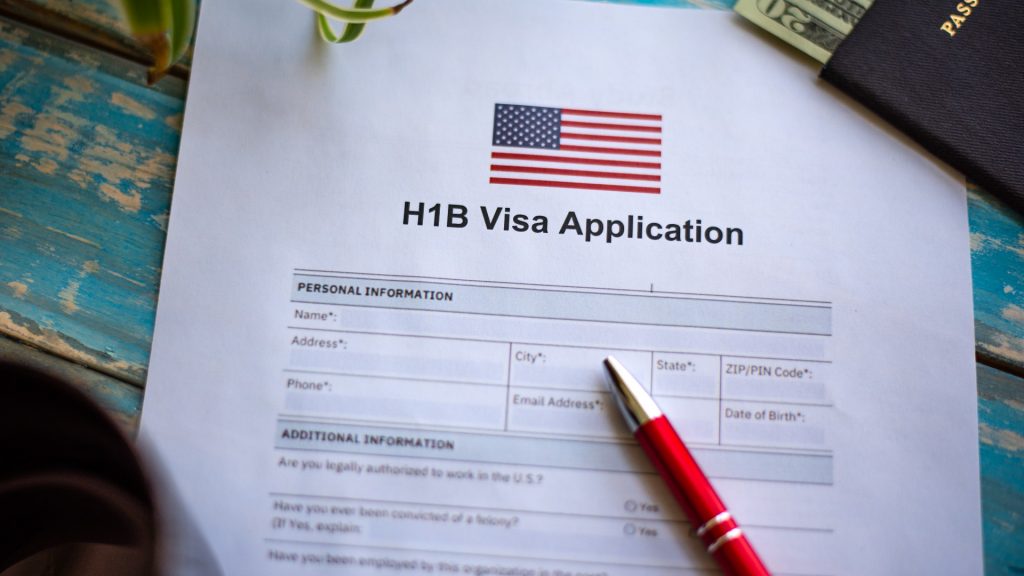President Donald Trump signed a proclamation Monday temporarily suspending entry of certain employment-based nonimmigrant visa holders.
The proclamation is effective June 24, 2020 and impacts H-1B (specialty occupation), L (intracompany transfer), H-2B (temporary worker) and most J (exchange visitor) visas. The new restrictions will last until at least the end of the year.
Specifically, the proclamation impacts foreign nationals who:
- Are outside the United States on the effective date of the proclamation;
- Do not have a nonimmigrant visa that is valid on the effective date of the proclamation; and
- Do not have an official travel document other than a visa (such as a transportation letter, an appropriate boarding foil or an advance parole document) that is valid on the effective date of the proclamation or issued on any date thereafter that permits them to travel to the United States and seek entry or admission.
The proclamation only impacts individuals who are outside the United States and who do not already have a valid H-1B, L-1 or J-1 visa stamp in their passports. The measure does not impact individuals that are already living and working inside the United States in valid status. Further, the proclamation does not impact those who already have a valid H-1B, L-1 or J-1 visa stamp in their passport.
To avoid risk of being unable to reenter the U.S., the attorneys at Garfinkel Immigration recommend that foreign national employees and any dependent family members, who are currently in the U.S. and maintaining nonimmigrant status, not travel outside of the U.S. at this time.
The proclamation includes limited exemptions for:
- Any lawful permanent resident of the United States
- Any foreign national who is the spouse or child of a United States citizen
- Any foreign national seeking to enter the United States to provide temporary labor or services essential to the United States food supply chain
- Any foreign national whose entry would be in the national interest as determined by the Secretary of State, the Secretary of Homeland Security or their respective designees, which will include foreign nationals who are critical to the defense, law enforcement, diplomacy or national security of the United States; involved with the provision of medical care to individuals who have contracted COVID-19 and are currently hospitalized; involved with the provision of medical research at United States facilities to help the United States combat COVID-19; and necessary to facilitate the immediate and continued economic recovery of the United States.
Those who are outside the U.S. are already facing challenges entering the country because of previously issued travel bans prohibiting certain individuals from entering the U.S. from specified countries experiencing high levels of COVID-19.
Further, the U.S. borders with Canada and Mexico have been closed since mid-March for “non-essential” travel because of the coronavirus (COVID-19) pandemic. The Department of State has suspended routine visa services at most U.S. Embassies and Consulates worldwide since March, as well. Therefore, the proclamation does not actually impact the status quo since foreign national employees are unable to apply for visa stamps at this time due to the Embassy and Consulate closures.
Trump claimed that the proclamation, which is expected to face legal challenges in federal court, was necessary because of the economic impacts of the coronavirus (COVID-19) pandemic.
The plan to suspend certain employment-based visas has been criticized by multiple business advocacy groups, including the United States Chamber of Commerce, which wrote a letter to the Trump administration in late May discouraging a proclamation that would limit access to “legal immigrant workers.”
“(Banning) companies from utilizing these immigrant and temporary nonimmigrant visa programs would substantially limit the ability of many companies to help get the American economy moving again,” the letter read , in part. “In turn, that would negatively impact the millions of Americans who are counting on a swift economic recovery to return to work themselves.”
Trump also issued a proclamation in mid-April barring certain individuals from entering the U.S. as Immigrants for at least 60 days. Those measures have also been extended by this proclamation through December 31, 2020.
Garfinkel Immigration Law Firm continues to monitor the situation closely and will alert clients as the situation evolves. Our attorneys are actively identifying specifically impacted cases and advising our clients accordingly.

